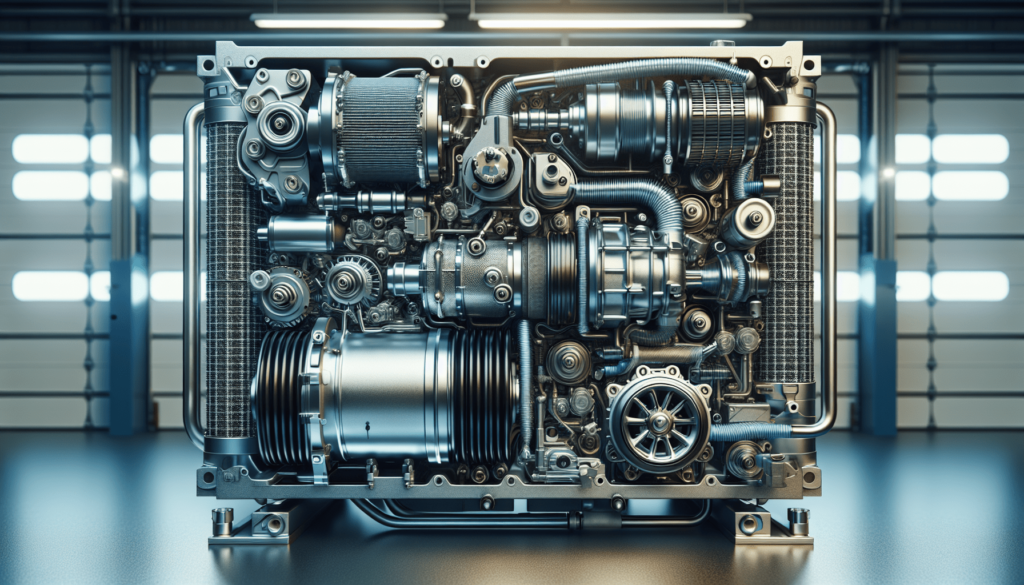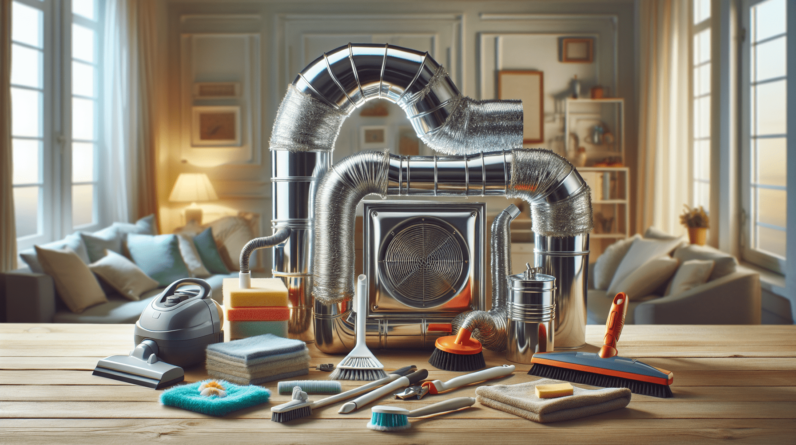

Have you ever found yourself sweltering in your car during a hot summer day, only to discover that your air conditioner is blowing out hot air instead of the refreshing coolness you were counting on? Automotive air conditioner issues can be incredibly frustrating, especially when the summer heat is unforgiving. Let’s talk about automotive air conditioner repair near you and how to navigate these unexpected situations.
Understanding Automotive Air Conditioning Systems
It’s important to first grasp how your car’s air conditioning system works. A basic understanding can help you diagnose potential problems and communicate effectively with repair professionals.
Components of an Automotive Air Conditioning System
An automotive air conditioning system consists of several key components, each playing a vital role in the cooling process:
| Component | Function |
|---|---|
| Compressor | Compresses the refrigerant and circulates it throughout the system. |
| Condenser | Releases heat from the refrigerant outside the vehicle. |
| Expansion Valve | Regulates the flow of refrigerant into the evaporator. |
| Evaporator | Absorbs heat from the cabin air, cooling it before it returns to the car. |
| Receiver-Drier | Removes moisture from the refrigerant and protects the system. |
Understanding these components can help you identify where things might be going wrong when your AC isn’t functioning properly.
Common Issues with Automotive Air Conditioners
There are several common issues that you may encounter with your car’s air conditioning system. Let’s break them down so you can recognize problems early on:
-
Refrigerant Leaks: One of the most frequent issues is a lack of refrigerant due to leaks. If you notice your AC isn’t cooling as it should, a refrigerant leak might be the culprit.
-
Compressor Problems: The compressor is crucial for the system to generate cool air. If it fails, the system won’t work effectively, even if other components are functioning properly.
-
Electrical Issues: Fuses or wiring problems can prevent the AC system from operating, leading to hot air blowing from the vents.
-
Blocked Condenser: A blocked condenser can prevent the refrigerant from cooling down appropriately, causing it to overheat and fail.
-
Faulty Expansion Valve: If the expansion valve malfunctions, it can disturb refrigerant flow, leading to inadequate cooling.
Understanding these issues can aid in quicker diagnosis and ensure you’re not left in the heat for too long.
Signs You Need Automotive Air Conditioner Repair
Sometimes, recognizing the signs that your vehicle needs air conditioning repair can save you from discomfort. Here are a few indicators that your AC system is in trouble:
Weak Airflow
If you notice that the airflow from your vehicle’s vents is weak, it could be due to a clogged cabin filter or issues with the blower motor. Keeping an eye on airflow strength can give you early warnings.
Strange Noises When AC is On
Unusual sounds, such as grinding or squealing, could indicate a problem with the compressor or other mechanical components. If you hear something off, it’s wise to have it checked.
Unpleasant Odors
If your AC starts to smell musty or like mold, that’s a clear sign that mold may have developed. It’s important to get this addressed quickly, as it can affect air quality and health.
Frequent Cycling On and Off
If your AC cycles on and off repeatedly, it could suggest a refrigerant leak or a failing compressor. This can cause excessive wear on the system, leading to more costly repairs down the line.
Moisture Inside the Car
If you notice water pooling inside your vehicle, it could indicate a clogged drain hose or other issues. It’s crucial to resolve this promptly to avoid mold growth.
Being aware of these signs can help you stay ahead of potential problems.

Why You Should Get Your Automotive AC Serviced Regularly
Regular maintenance is essential for keeping your automotive air conditioning system in good working order. Here’s why it’s beneficial to schedule routine check-ups:
Cost-Effectiveness
Frequent servicing can help catch issues before they escalate into major repairs. Spending a little on maintenance now can save you a lot in the long run.
Increased Efficiency
An efficiently running AC system not only cools your car better but also uses less fuel. By keeping up with maintenance, you can help your system perform its best.
Improved Air Quality
Regularly servicing your AC ensures that the air inside your vehicle remains clean and free of mold and mildew. This is vital for your health and comfort.
Extended Lifespan of the System
Taking proper care of your AC system can prolong its lifespan, meaning you won’t have to replace it as often. Treating your system well will yield dividends down the road.

Finding Automotive Air Conditioner Repair Near You
When your AC is acting up, finding a reliable mechanic who specializes in automotive air conditioning repair can seem daunting. Here are a few steps to help you out:
Check Online Reviews
Start by searching for “automotive air conditioner repair near me” online. Look at customer reviews and ratings for local shops. This feedback can provide great insight into the experiences of others.
Ask for Recommendations
Don’t hesitate to ask friends, family, or coworkers for their recommendations. Personal referrals can lead you to reputable professionals who have proven their skills.
Verify Certifications
When you find a shop, check their certifications and licenses. Ideally, you want to work with technicians who are certified by recognized organizations like ASE (Automotive Service Excellence).
Inquire About Estimates
Once you’ve narrowed down your options, contact a few shops and ask for estimates on AC repairs. This will help you gauge pricing and ensure you’re getting a fair deal.
Being proactive in finding a reliable service can make a world of difference in getting back to cool comfort quickly.

What to Expect During an Automotive Air Conditioner Repair
If you decide to seek professional help, it is helpful to know what to expect during the service visit. Here’s a general overview:
Initial Inspection
A qualified technician will begin with a thorough inspection of your automotive AC system. This may include checking the components mentioned previously, looking for leaks, and testing the system to see if it operates effectively.
Diagnostic Testing
Often, the technician will perform diagnostic tests to gather data and pinpoint the issue. This might involve using specialized equipment to measure refrigerant levels, pressure, or electrical functionality.
Detailed Explanation of Findings
After the inspection and diagnostics, the technician should provide a detailed explanation of the findings. They will discuss what repairs are needed, along with any associated costs.
Repair Work
Once you give the go-ahead, the technician will proceed with the necessary repairs. This could involve recharging the refrigerant, replacing faulty components, or addressing electrical issues.
Final Testing
After the repairs are complete, the technician will conduct final tests to ensure that everything works as it should. They should also provide advice on how to maintain your AC system moving forward.
Knowing what to expect can help alleviate any anxiety about the repair process.
DIY Tips for Maintaining Your Automotive AC System
While some issues require professional intervention, there are several upkeep tasks you can perform to keep your automotive air conditioning system running smoothly. Here are some handy tips:
Regularly Replace the Cabin Air Filter
Changing your cabin air filter regularly can significantly improve air quality and airflow within the vehicle. Consult your owner’s manual for replacement intervals.
Keep the Condenser Clean
Cleaning the condenser removes dirt and debris that can obstruct airflow. You can do this by gently spraying it with water during routine car washes—be careful not to bend the fins.
Run the AC Regularly
Even in colder months, running the AC periodically can help lubricate the system and prevent the seals from drying out. A few minutes every month can make a substantial difference.
Check for Leaks
Every so often, inspect the AC system (if you’re comfortable) for any visible signs of oil or refrigerant leaks. Addressing leaks early can save you significant hassle down the road.
Monitor Performance
Be aware of how your system performs over time. If you notice any subtle changes in airflow or temperature, don’t procrastinate—get it checked!
Engaging in these simple practices can prolong the life of your automotive AC system and keep you comfortable.
Costs Associated with Automotive Air Conditioner Repair
Understanding the potential costs involved with air conditioning repair can help you budget effectively. Here’s a breakdown of what you might expect:
Minor Repairs
For minor issues, such as recharging refrigerant or replacing fuses, you might be looking at costs ranging from $100 to $300. These are usually relatively quick fixes.
Moderate Repairs
Moderate repairs might involve replacing an expansion valve or fixing a leak. Costs for these types of repairs typically range from $300 to $800.
Major Repairs
For significant repairs, like a complete compressor replacement or extensive electrical work, costs can range from $800 to as much as $2,500 or more.
These figures can vary widely based on your location, the make and model of your vehicle, and the specific shop you choose.
Conclusion
Battling a broken automotive air conditioner can put a damper on your driving experience, but with the right knowledge and resources, you can navigate this challenge with confidence. Familiarize yourself with how your AC system works, recognize the warning signs of malfunction, and make informed decisions when seeking repair services. Regular maintenance will not only keep you cool during those scorching summer months but will also extend the lifespan of your vehicle’s air conditioning system.
If your AC is on the fritz, take action and don’t let the heat ruin your drive. Remember, whether you decide on a DIY approach or opt for repair service, staying informed and proactive is key.






